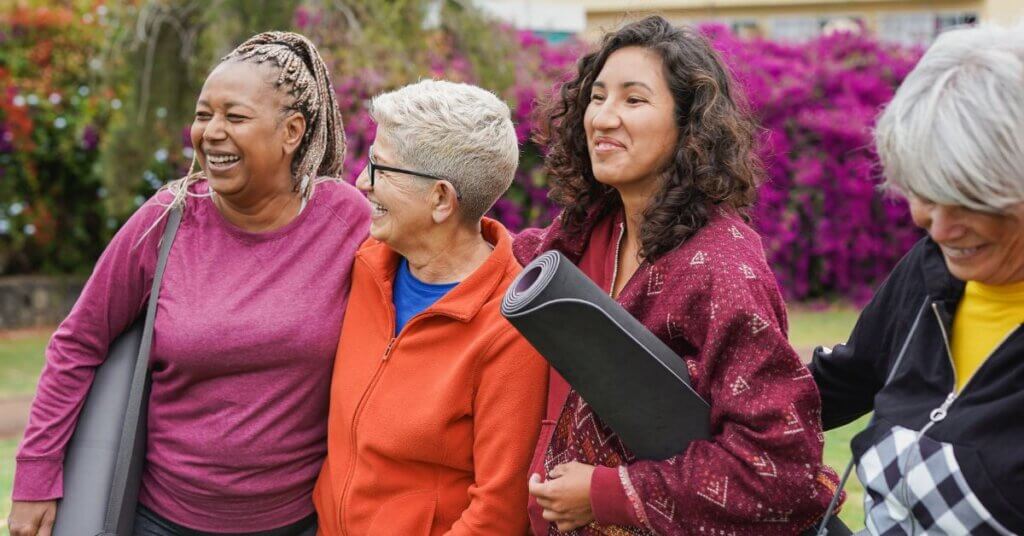
Gratitude acts as an emotional anchor for those with memory loss challenges. Memory care in Tacoma, WA, uses gratitude to create a true home environment rather than just a place to stay. This approach reshapes clinical settings into caring communities where residents and caregivers thrive in an appreciative culture.
Memory care communities can transform clinical environments into genuine homes through gratitude-based practices that benefit residents, caregivers and families alike.
Quality memory care communities stand out through staff consistency, positive atmosphere, resident involvement and gratitude-based programs. People’s Senior Living shows these qualities in its memory support in Tacoma, WA. Their focus on personal dignity and individualized care creates an environment where gratitude flows naturally among residents, staff and families.
What Are The Signs Of A High-Quality Memory Care Community Culture In Tacoma, WA?
A high-quality memory care community culture is recognized by its focus on individualized comfort and emotional warmth. Look for staff who demonstrate genuine compassion, resident programs that foster community bonds and a tangible atmosphere of gratitude that supports both residents and their families.
Research “The meaning and experience of gratitude for people living with dementia” Pearson, M., Clarke, C., & Wolverson, E. (2022) shows that gratitude provides the most important emotional benefits for people living with dementia.
- Gratitude holds both interpersonal (social) and transpersonal (spiritual/existential) meanings for people living with dementia.
- These feelings of gratitude are often balanced against the challenges associated with dementia and aging.
- Interventions based on positive psychology principles, informed by these findings, may be effective tools for supporting the overall well-being of people with dementia.
Staff consistency and emotional tone
The staff-to-resident ratio stands out as a crucial quality indicator in memory care settings. Top communities maintain ratios of 1:8 during day shifts. Overnight staffing typically ranges from 1:15. These numbers help caregivers build meaningful relationships with residents and understand their unique needs.
Caregivers who practice gratitude tend to experience lower stress levels and greater overall well-being. The practice helps them see positives even in tough situations. It encourages empathy and deepens their commitment to residents.
- Talk to residents with warmth and respect
- Listen carefully to concerns
- Handle challenging behaviors patiently
Resident engagement and mutual respect
Great memory care communities create spaces where residents stay active in daily life. You should see residents who look content and involved, not isolated or inactive. Quality programs include diverse activities that match different cognitive abilities. Music therapy, art expression, brain games and supervised outings are common examples.
The staff’s respect for residents shows in how they protect everyone’s integrity and choices. Residents should have control over their daily decisions, even in secure settings.
Gratitude-centered events and programs
Outstanding memory care communities weave gratitude into their regular activities. Residents join gratitude circles, celebration events and family appreciation gatherings. This focus on thankfulness helps improve everyone’s emotional well-being.
At People’s Senior Living, we recognize the importance of gratitude by hosting a special Thanksgiving celebration that brings residents and their families together to share moments of appreciation.
How Can Families Participate In Gratitude-Based Care?
Family participation plays a crucial role in gratitude-based memory care success. Families who adopt gratitude practices boost their emotional well-being and their loved ones’ quality of life with dementia.
Simple ways families can express appreciation
A consistent gratitude practice needs neither much time nor resources. Gratitude journals, for instance, help change your perspective and teach you to focus on even the smallest blessings. These practical approaches might work:
- Keep a bedside journal to document positive interactions during visits
- Write thank-you notes to staff members who provide exceptional care
- Make a “gratitude jar” where family members add notes about things they appreciate
- Share verbal appreciation directly with your loved one, even with limited cognitive abilities
What memory care in Tacoma, WA, helps families find peace of mind?
People’s Senior Living in Tacoma excels with its detailed approach to bringing families into gratitude-based care. Their community culture promotes regular family communication and creates opportunities to participate meaningfully in resident care.
Regular updates about their loved ones’ positive experiences give families peace of mind instead of focusing only on challenges. This approach builds a partnership where professional caregivers and families celebrate small victories together.
Using Gratitude To Ease The Transition Into Memory Care
The transition period matters deeply for residents and families alike. Experts suggest showing gratitude for staff efforts early to build positive relationships. This creates an environment where families feel at ease communicating concerns while recognizing positive aspects of care. Regular visits during social events can smooth this transition and help your loved one make new friends while staying connected to family.
Gratitude reshapes memory care environments. It turns clinical facilities into comfortable, dignified homes. Gratitude helps residents deal with cognitive challenges and supports caregivers and families through this experience.
Why Is Gratitude The Most Important Factor For High-Quality Memory Care?
The best memory care isn’t just about physical amenities. It’s about creating an emotional culture that pervades every interaction. Places that make gratitude their core value build spaces where residents feel valued despite cognitive changes. Caregivers find purpose in their work and families find peace during difficult times.
Looking for memory care or ways to improve existing care relationships? Note that gratitude opens doors to comfort and connection. Call People’s Senior Living at (253) 474-1741 to schedule a tour. See how their gratitude-centered approach creates a nurturing home for residents.
FAQs
Q1. How can you determine if a memory care community is truly high-quality?
A great memory care community stands out through its people and atmosphere. You’ll notice staff who treat residents with warmth and respect and a healthy staff-to-resident ratio that allows for personalized attention. The best communities also weave gratitude and positivity into daily life, making sure every resident feels valued and respected for who they are.
Q2. How does gratitude make a difference in memory care environments?
Gratitude has a powerful impact — it helps turn what could feel like a clinical setting into a true home filled with compassion and respect. When caregivers, residents and families practice gratitude, it strengthens emotional connections, reduces stress and creates a more peaceful environment.
Q3. How can families take part in gratitude-based care for their loved ones?
Families play a big role in creating a culture of gratitude. Simple gestures — like keeping a gratitude journal, leaving thank-you notes for staff or starting a “gratitude jar” — can make a real difference. Expressing appreciation during visits not only lifts everyone’s spirits but also helps residents feel more connected and supported.












